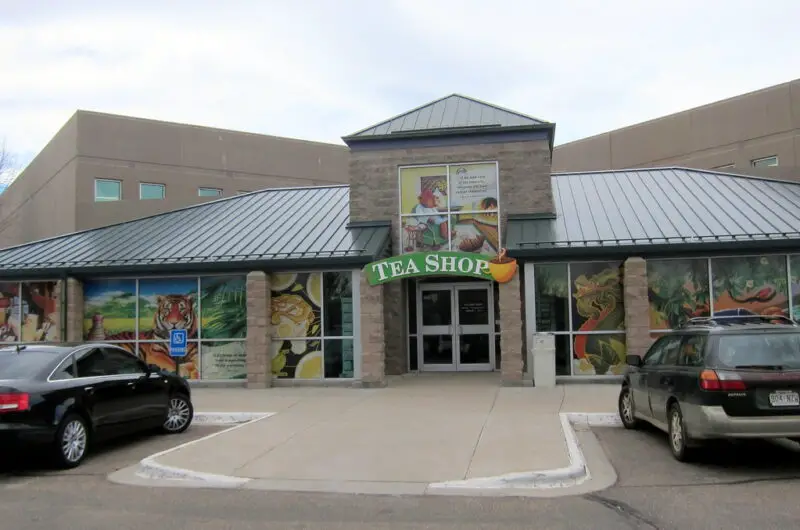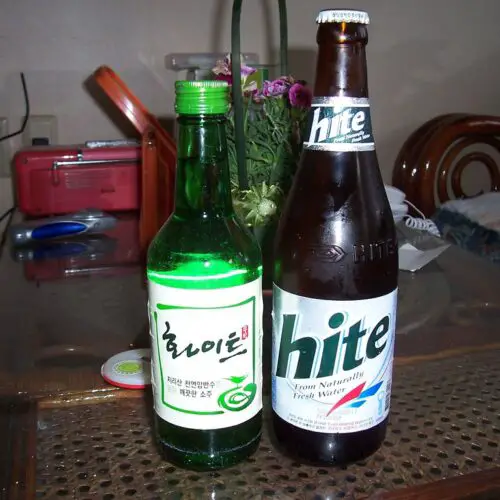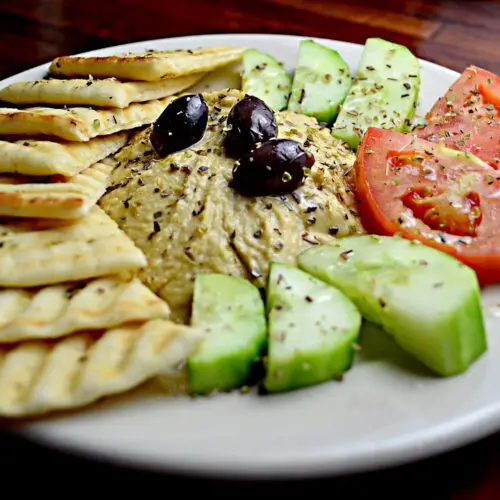In an era where consumers are increasingly conscious of what goes into their bodies, the demand for organic and non-GMO (genetically modified organism) foods has skyrocketed. People are seeking transparency, sustainability, and healthier options, driving food companies to adapt and innovate. Organic foods, grown without synthetic pesticides or fertilizers, and non-GMO foods, free from genetically engineered ingredients, represent a shift toward cleaner eating. This article explores the top organic and non-GMO food companies that have risen to prominence, offering high-quality products while championing environmental stewardship and consumer health. We’ll dive into their histories, product offerings, and contributions to the organic and non-GMO movement as of March 3, 2025.
The Rise of Organic and Non-GMO Foods
The organic and non-GMO food market has grown tremendously over the past few decades. According to industry reports, the global organic food market was valued at over $100 billion in 2023 and continues to expand, fueled by consumer awareness of health, environmental concerns, and distrust of industrial agriculture. Similarly, the non-GMO market has seen a surge, with products bearing the Non-GMO Project Verified seal generating billions in annual sales.
These certifications assure consumers that their food aligns with their values, free from synthetic chemicals or genetic tampering.
While organic certification often implies non-GMO status (as GMOs are prohibited under USDA organic standards), not all non-GMO foods are organic. This distinction has allowed companies to cater to a wide range of preferences, from fully organic enthusiasts to those simply avoiding GMOs. The companies highlighted below have distinguished themselves as leaders in this space, blending innovation, quality, and sustainability.
1. Amy’s Kitchen
Overview
Founded in 1987 by Andy and Rachel Berliner, Amy’s Kitchen is a family-owned company based in Petaluma, California. Named after their daughter, Amy, the company was born out of a desire to create convenient, organic meals free from artificial additives and GMOs. Today, Amy’s Kitchen is a household name in the organic and non-GMO food sector, offering over 250 products across 27 categories.
Product Offerings
Amy’s specializes in frozen and convenience foods, including burritos, pizzas, soups, and pasta sauces. All products are certified organic and non-GMO, with many options catering to specific dietary needs like gluten-free, vegan, and low-sodium diets. Standouts include their Organic Lentil Vegetable Soup and Vegan Margherita Pizza, which combine flavor with wholesome ingredients.
Commitment to Sustainability
Amy’s Kitchen goes beyond organic certification by prioritizing sustainability. The company sources ingredients from organic farms, supports non-GMO agriculture, and has been a longtime advocate for GMO labeling initiatives, including its sponsorship of Farm Aid’s annual benefit concert. In 2015, Amy’s opened its first all-organic, gluten-free drive-thru restaurant in California, showcasing its dedication to accessible, healthy eating.
Why It Stands Out
Amy’s blends convenience with integrity, proving that fast food doesn’t have to compromise on quality. Its global reach—spanning the U.S., Canada, Great Britain, Germany, Latin America, Australia, and China—demonstrates its influence in the organic food movement.
2. The Hain Celestial Group
Overview
Established in 1993 and headquartered in Lake Success, New York, The Hain Celestial Group is a major player in the organic and natural foods industry. With a portfolio of well-known brands, Hain Celestial markets products that are organic, non-GMO, and designed for health-conscious consumers.
Product Offerings
Hain Celestial’s brands include Celestial Seasonings (herbal teas), Earth’s Best (organic baby food), Garden of Eatin’ (snacks), and MaraNatha (nut butters). These products span food, beverages, and personal care, with a focus on natural, organic, and non-GMO ingredients. For example, Earth’s Best offers organic infant formulas free from GMOs, while Garden of Eatin’ provides tortilla chips made from non-GMO corn.
Commitment to Sustainability
Hain Celestial emphasizes environmentally sound practices, from sourcing sustainably grown ingredients to reducing its carbon footprint. The company’s mission is to “nourish and delight” consumers while promoting a healthier planet, aligning with the organic and non-GMO ethos.
Why It Stands Out
Hain Celestial’s diverse brand portfolio makes it a versatile leader, catering to everyone from tea drinkers to parents seeking organic baby food. Its scale and commitment to quality have solidified its position in the market.
3. Organic Valley
Overview
Founded in 1988 in La Farge, Wisconsin, Organic Valley is a cooperative of over 1,800 family farmers. It’s one of the largest organic consumer brands in the U.S., known for its dedication to small-scale farming and high-quality dairy products.
Product Offerings
Organic Valley offers a wide range of products, including milk, cheese, eggs, butter, yogurt, and protein shakes—all certified organic and non-GMO. Under its Organic Prairie brand, it also sells organic meats like beef, pork, chicken, and turkey. The cooperative ensures its livestock are raised without hormones, antibiotics, or GMO feed.
Commitment to Sustainability
Organic Valley combines traditional farming wisdom with modern regenerative agriculture techniques. The cooperative supports local economies by keeping farming profits with its member families and promotes biodiversity by avoiding synthetic chemicals. In 2017, it partnered with Dean Foods to launch Organic Valley Fresh, expanding its market presence.
Why It Stands Out
As a farmer-owned cooperative, Organic Valley embodies a grassroots approach to organic food production. Its focus on ethical farming and community support sets it apart from corporate giants.
4. Clif Bar & Company
Overview
Started in 1992 by Gary Erickson in Emeryville, California, Clif Bar & Company is synonymous with energy bars and organic snacks. Inspired by Erickson’s cycling adventures, the company began with a mission to create nutritious, portable food for active lifestyles.
Product Offerings
Clif’s flagship products include CLIF energy bars, LUNA bars for women, and Zbar for kids—all made with organic, non-GMO ingredients. The company also offers protein bars, energy drinks, and snacks tailored to athletes and health enthusiasts, sold through specialty stores and natural food markets.
Commitment to Sustainability
Clif Bar sources organic ingredients wherever possible and has committed to reducing its environmental impact through sustainable packaging and energy-efficient manufacturing. Its advocacy for non-GMO sourcing aligns with its health-focused mission.
Why It Stands Out
Clif Bar’s niche in the active lifestyle market, combined with its organic and non-GMO credentials, makes it a go-to for consumers seeking performance-driven nutrition without compromising on quality.
5. Nature’s Path Organic Foods
Overview
Founded in 1985 by Arran and Ratana Stephens in British Columbia, Canada, Nature’s Path is a family-owned company dedicated to organic breakfast foods. It’s grown into North America’s largest independent organic cereal manufacturer.
Product Offerings
Nature’s Path specializes in cereals, granolas, oatmeal, and snacks, all certified organic and Non-GMO Project Verified. Popular products include Love Crunch Granola and Heritage Flakes cereal, made from ancient grains and free of synthetic additives.
Commitment to Sustainability
The company supports organic farming by sourcing ingredients from regenerative farms and has donated millions to food banks and environmental causes. Nature’s Path also advocates for GMO labeling, reflecting its commitment to transparency.
Why It Stands Out
Nature’s Path combines delicious flavors with a strong ethical backbone, making it a favorite among organic breakfast lovers. Its independence from large conglomerates enhances its credibility.
6. Annie’s Homegrown
Overview
Launched in 1989 by Annie Withey and Andrew Martin, Annie’s Homegrown began with a single product: organic mac and cheese. Based in Berkeley, California, it’s since expanded into a beloved brand for families seeking organic and non-GMO options.
Product Offerings
Annie’s offers mac and cheese, snacks like Bunny Grahams, cereals, and fruit snacks—all organic and non-GMO. Its products emphasize simple, recognizable ingredients, appealing to kids and adults alike.
Commitment to Sustainability
Annie’s partners with organic farmers and supports initiatives like the Non-GMO Project. Though acquired by General Mills in 2014, it has maintained its commitment to organic integrity, with all products still free of GMOs.
Why It Stands Out
Annie’s playful branding and focus on kid-friendly, organic foods make it a standout. Its ability to retain its values under corporate ownership is a testament to its resilience.
7. Newman’s Own Organics
Overview
Founded in 1993 as a division of Newman’s Own (started by Paul Newman in 1982), Newman’s Own Organics became an independent entity focused on organic foods. Based in California, it donates all profits to charity, a legacy of Newman’s philanthropy.
Product Offerings
The company offers organic snacks (pretzels, cookies), beverages (tea, lemonade), and pet food—all certified organic and non-GMO. Its Fig Newmans and Organic Olive Oil are fan favorites.
Commitment to Sustainability
Newman’s Own Organics sources from organic suppliers and supports sustainable agriculture. Its charitable model has donated over $570 million to causes worldwide, blending purpose with profit.
Why It Stands Out
The combination of organic excellence and 100% profit donation makes Newman’s Own Organics unique. It’s a brand that feeds both the body and the soul.
8. Cascadian Farm
Overview
Founded in 1972 in Washington’s Skagit Valley, Cascadian Farm pioneered organic farming in the U.S. Now owned by General Mills, it remains a leader in organic and non-GMO foods.
Product Offerings
Cascadian Farm produces frozen fruits and vegetables, cereals, and granola bars—all organic and non-GMO. Its frozen organic peaches and Cinnamon Crunch cereal are widely popular.
Commitment to Sustainability
The company maintains organic farming practices and supports pollinator habitats through initiatives like bee-friendly planting. Its products are in the process of full Non-GMO Project verification.
Why It Stands Out
Cascadian Farm’s long history and focus on frozen organic produce make it a staple for health-conscious shoppers seeking convenience.
Emerging Players and Trends
Beyond these giants, smaller companies like Bearded Brothers (organic energy bars) and Artisana Nut Butters (organic, non-GMO spreads) are gaining traction. Trends like regenerative agriculture, plant-based diets, and increased transparency are shaping the future of the organic and non-GMO sector. Major brands like Nestlé and Dannon have also begun transitioning to non-GMO ingredients, reflecting broader market shifts.
Conclusion
The top organic and non-GMO food companies—Amy’s Kitchen, Hain Celestial, Organic Valley, Clif Bar, Nature’s Path, Annie’s, Newman’s Own Organics, and Cascadian Farm—represent the best of what this movement offers: quality, sustainability, and consumer trust. Whether you’re seeking convenience, nutrition, or ethical production, these companies deliver. As of March 3, 2025, their influence continues to grow, paving the way for a healthier, more transparent food system. By supporting these brands, consumers not only nourish themselves but also contribute to a more sustainable planet.


















